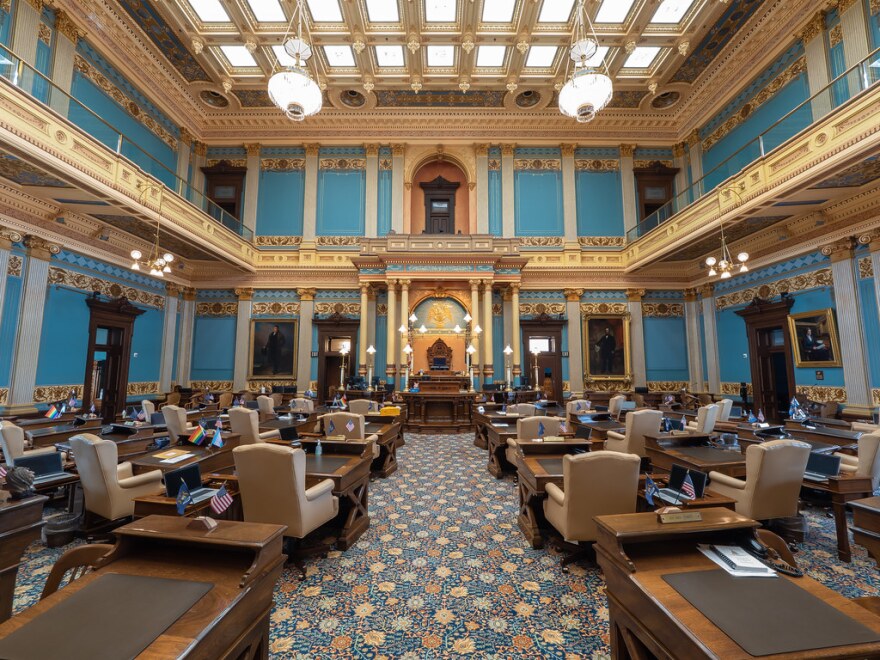Michigan bills to increase transparency for budget earmarks are heading to the full state Senate after they advanced out of committee Tuesday.
The package would require lawmakers to publicly list any special spending items they’re requesting, and hold a hearing on them before they’re voted on.
Senate Appropriations Committee Chair Sarah Anthony (D-Lansing) said the legislation builds on prior open-government efforts.
“These bills represent a significant step forward in modernizing our budget process, reinforcing the public trust, and ensuring that legislatively directed spending items are more transparent and responsible,” Anthony said during the Senate Appropriations Committee hearing.
The bills are part of a compromise made during negotiations to get support for the most recent state budget.
During Tuesday’s committee hearing, some concerns arose because the bills wouldn’t set a hard deadline for submitting earmark requests and they would ban for-profit companies from receiving earmarks.
Senator John Damoose (R-Harbor Springs) took issue with that exclusion.
“Sometimes for-profit companies do great work. I mean, we support them,” he said during the questioning.
Package cosponsor Representative Tom Kunse (R-Clare) agreed with that logic. Likewise, Anthony said she saw the point. But package sponsors said they agreed to start with non-profits because of their preexisting transparency requirements.
“If we want to continue to build on this, we’re happy to do so but we did think that a good first step in reigning in these spending items would be to work directly with nonprofits,” Anthony said.
Meanwhile, Senator Jeff Irwin (D-Ann Arbor) shared multiple worries about the effort. For one, he feared it could be a distraction from other meaningful transparency reform, like applying open-records laws to the Legislature and governor’s office.
Irwin said it would also hurt lawmakers’ constitutional ability to amend the budget.
“I think this legislation is well intentioned but hastily crafted. And if it can be fixed to solve the constitutional problems and to make it an asset to the budget process, I think that would be great because we definitely want and need more transparency,” Irwin said in an interview Wednesday afternoon.
He also said he worried it could incentivize lawmakers to wait until the last minute to pass their budget proposals. That’s because, in that case, they’d have more time to put in earmarks to respond to any events like flooding that may come up during the budget process.
Package supporters said the legislation would carve out funding for emergencies and that lawmakers could always pass supplemental spending bills. But Irwin said those may not be reliable options.
Part of the package had been tentatively scheduled for a floor vote Tuesday during Senate session. The bills did not come up.
Non-commercial, fact based reporting is made possible by your financial support. Make your donation to WEMU today to keep your community NPR station thriving.
Like 89.1 WEMU on Facebook and follow us on X (Twitter)
Contact WEMU News at 734.487.3363 or email us at studio@wemu.org






